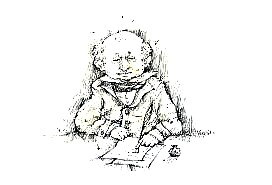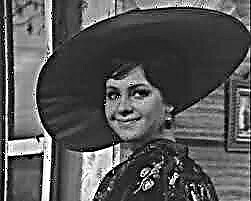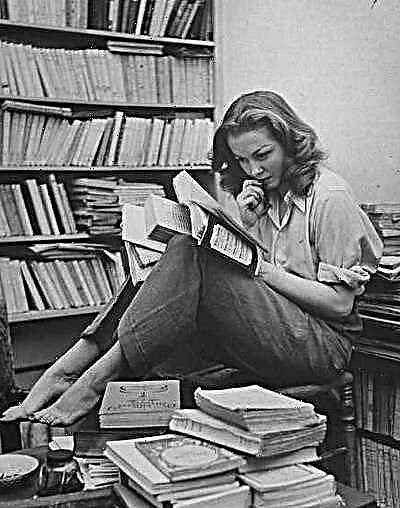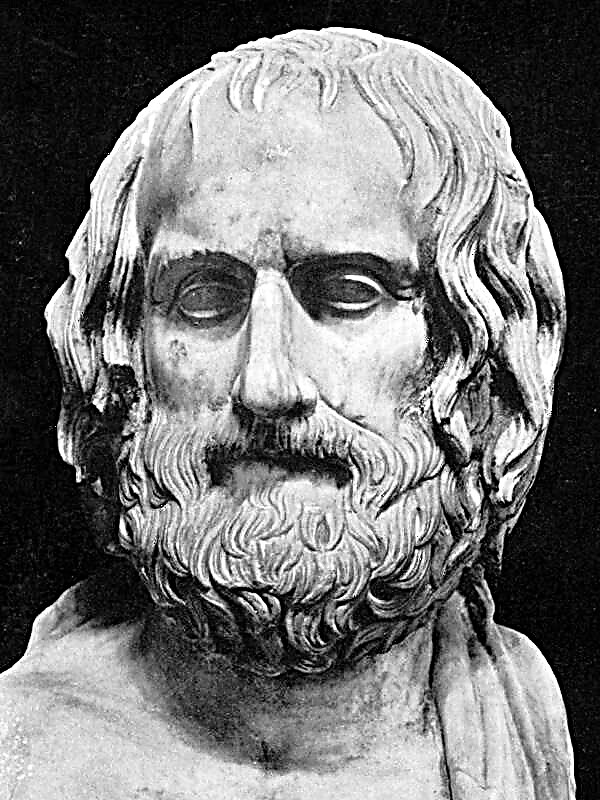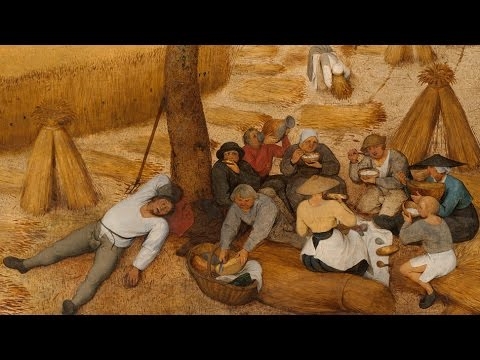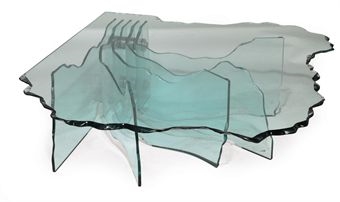The ruler of Ruma Failakus, returning from a long trip home, noticed a newly born baby on the road. Failakus ordered to bury her, but he took the newborn with him, adopted and determined his heir, calling him Iskander. Time passed, and Fileakus called on the renowned scientist and philosopher Nikumahis to be the heir's educators. Nikumahis and his son Aristotle made friends with the young man and remained faithful to this friendship for life.
Died Fileakus. Iskander arranged a magnificent funeral and with great honors conducted him on his last journey.
By this time, Iskander had already managed to show his talent in many areas. He excelled in the sciences, philosophy, gained fame as a truth-seeker. In his actions, he was guided only by justice, was a bit to the people around him. Knowing all these qualities, the people after the death of Failacus unanimously recognized him as worthy of the throne of his father. Iskander was embarrassed and alarmed at the same time: could he replace the so illustrious king and justify the confidence of the people. He expressed his doubt publicly: thanking everyone, he refused to take the throne of his father. However, after much persuasion, he had no choice but to submit to the will of fate.
The first good initiative of Iskander was the abolition for two years of all taxes from the population. He set moderate prices for vital goods, streamlined trade, established units of measure and weights, introduced rules for using housing, in a word, put things in order in governing the country.
Failakus, having been defeated in the war with Iran, was forced to pay him a tribute of a thousand gold eggs per year. Having become the ruler of the country, Iskander stopped paying tribute to Iran. Three years later, the Shah of Iran, Darius sent a message to Iskander demanding to immediately send him a tribute in three years. The message was left unanswered, the atmosphere was even more intensified. Faced the rulers of two powerful powers - Darius and Iskander.
The first battle did not reveal a winner. Meanwhile, Iskander became aware of a conspiracy against Darius. Two of his commanders set out to secretly put an end to their overlord. Iskander was terribly indignant at this news. Nevertheless, the next morning in the battle, the conspirators mortally wounded Darius and, leaving him on the battlefield, disappeared. Iranian soldiers fled in confusion. Iskander ordered the Iranian Shah to be immediately transferred to his camp. Darius managed to express his dying plea: to find and punish the killers, show mercy to his family and friends who were not involved in the war and did not fight against Iskander’s troops. Finally, the dying Darius asked Iskander to intermarry with him - to marry his daughter Ravshanak. By this, he would unite the two kingdoms - Iran and Rum.
Iskander, in turn, explained that he was not involved in the death of Darius, buried the Iranian shah with honors appropriate to the lord, and fulfilled all his orders.
In the initial period of the reign, Iskander took possession of the country of Maghrib. He gathered to know to consult on the candidacy of a new ruler, while presenting his demands: the future ruler should be fair. He was pointed to the prince, who refused to reign and moved to the cemetery, where he eked out a miserable existence. Iskander commanded to deliver it. They brought to him an almost naked man with two bones in his hand. The ruler asked what was the meaning of his behavior, what do these bones mean to him. The beggar said: "Walking between the graves, I found these two bones, but I could not determine which of them belonged to the king, and which to the beggar."
After listening to him, Iskander offered him the rule of the country. In response, the beggar put forward the following conditions: to live in such a way that old age does not supplant youth, so that wealth does not turn into poverty, and joy - grief. Hearing these words, Iskander sadly admitted that this beggar is morally superior to the ruler.
When marching to Kashmir, Iskander was waiting for a big surprise. Near the city, the wide passage between the mountains was closed by iron gates erected by Kashmir sorcerers. Iskander convened a council of scientists who were to reveal the secret of this miracle. After lengthy bickering, scientists agreed that iron gates should be blown up. But how? One of the participants in the meeting suggested filling the balls with explosives and bombing the city with them. When falling, the balls were supposed to explode and raise pillars of smoke that would dispel the spell and open the passage. So they did. The path to the city was open.
After this, the conqueror of the world sent his army to the west, to the country of Adan.
The next Iskander trip was to China. Upon learning of this, the Chinese autocrat came to meet at the head of a huge army, but Iskander did not think of an attack on him and bloodshed and disappeared. This act aroused bewilderment and determination in Hakan to solve this mystery. The next morning, dressed in the ambassador’s clothes, Hakan arrived at Iskander’s camp and greeted him and presented him with expensive gifts, among which were two mirrors. One of them reflected among the large number of participants in the reception only the face of the Chinese representative. The second mirror correctly reflected people only while they ate, drank and had fun. As soon as they got drunk, distorted figures of an inhuman appearance appeared in the mirror.
Iskander was delighted with what he saw and ordered his scientists not to be ashamed of the Chinese, to create something better. Scientists had to work all winter, and they created two mirrors from an alloy of copper and steel. Their special property was that in one reflected everything that was happening on earth, and in the other - the entire nine-tier universe. Iskander was overly pleased with the work of scientists, dignified them and entrusted them with the rule of Greece.
The next campaign Iskander made to the north. On the whole route he was served by a Chinese beauty, presented to him by Hakan. When they reached the country of Kirvon, local residents turned to Iskander complaining about the terrible, bestial temper of Yajuja and asked him to rid them of them. Yajuji lived between the mountain and the valley of darkness. Twice a year, they left their home and destroyed everything that came in their way, including the people whom they devoured alive.
Iskander demanded that noble masters be brought in from Russia, from Syria and Rum. They dug large ditches and filled them with an alloy of copper, tin, bronze, iron and lead. The next morning, Iskander sent his army to Yajuja and exterminated a considerable number of them, but the army of Iskander also got it. After this bloody battle of the master, the builders, on the order of Iskander, began to build a wall with a length of ten thousand, and a height of five hundred cubits. During the construction of the wall, the same metals and stone were used. It was built for six months, and so the path of Yajujam was blocked. The army climbed the wall and stoned them. Many of them were killed, and the rest fled.
After this campaign, Iskander returned to Rum. After spending some time there and having a rest, he began to prepare for a sea voyage. Stocks of weapons and products were made for eight years. A caravan of ships set sail towards the center of the ocean, where Iskander and his men dropped anchor. To study the bottom of the ocean, he ordered to build something like a chest out of glass, plunged into it, reached the bottom and, for a hundred days, monitored the inhabitants of the water body, correcting and clarifying everything that was known to science. This work culminated in Iskander attaining the holiness of the prophet.
It took a year of sailing for the prophet, as Iskander began to call him, to anchor in his homeland. A long journey did not pass without a trace. He was exhausted, a great world power fell into small kingdoms ruled by his many generals.
Sensing the approach of death, Iskander writes a letter to his mother, full of filial tenderness, grief and sadness, repenting that he could not properly protect her. The letter ended with the order not to arrange for him lush wires and crying about his death. He asked to bury him in the city he built - Alexandria and also asked not to nail the coffin so that everyone could see his hands and understand the disinterestedness of his conquests: after leaving the world, he took nothing with him.

